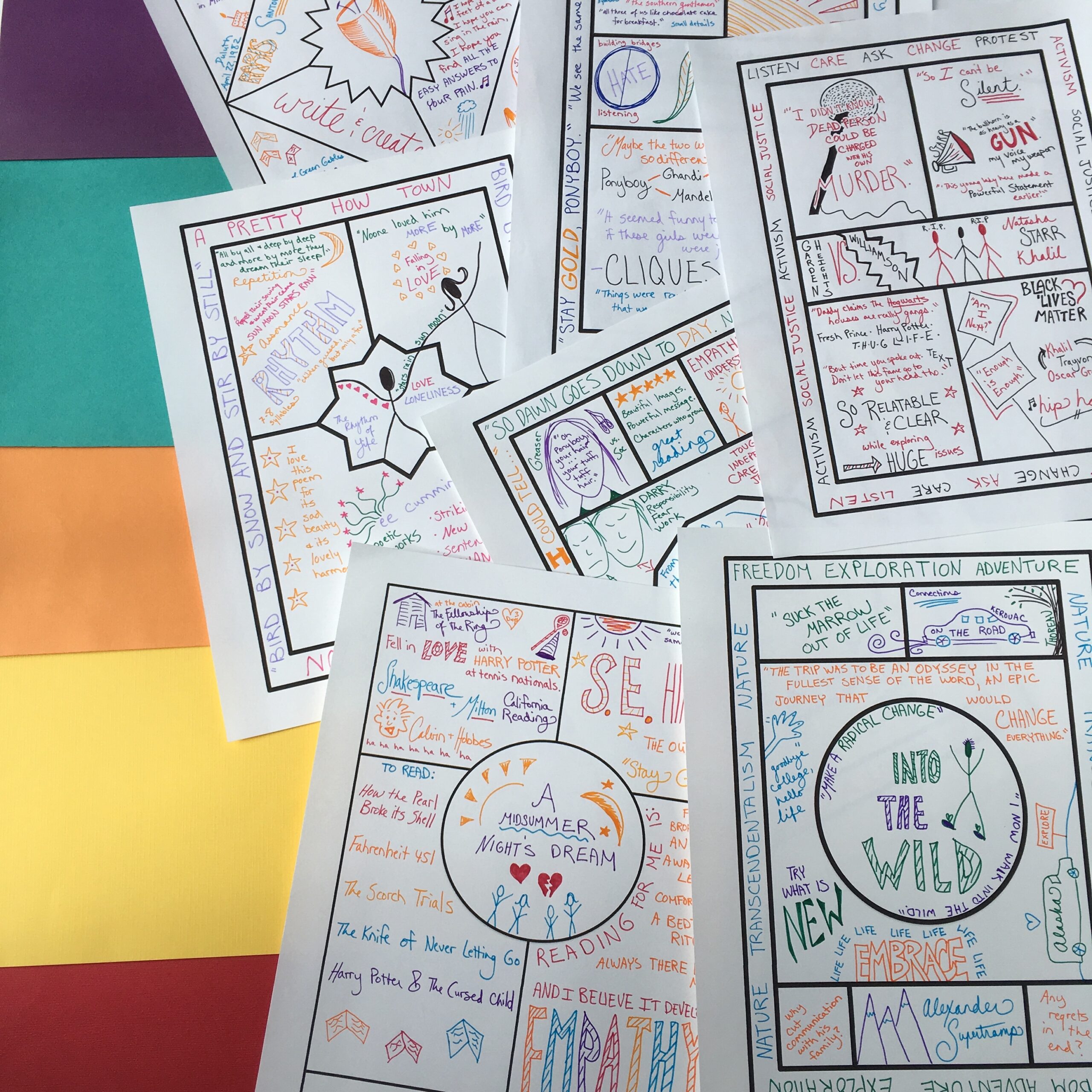
Lately I’ve been thinking a lot about electives. You will just love these socratic seminar ideas for teaching kids in a polarized world.
Electives I want to design, like one about Youtube creation and one about Taylor Swift, and the amazing electives teachers in our community are designing and teaching around the world.
So of course I’m really excited that today on the podcast we’ve got the first show in a new series about creative electives. My hope is that this series will bring you inspiration for new electives you can propose or new units you can teach, modeled on your favorite parts of other people’s electives, within your current courses.
I’ll be interviewing teachers about some of their favorite electives – what they are, what they accomplish, and how they do it.
On today’s show we’re diving into an interview with Amanda Beal, a creative teacher in Northern Minnesota. She’s going to be talking about a powerful elective for the world today, when we are so divided and yet so fearful of talking about the issues that divide us. I’m going to let her reveal the name and nature of this elective in just a moment – so stay tuned!
You can listen in to this episode below, click here to tune in on any podcast player, or read on for the full post.
Introducing the Elective
Amanda teaches “Socratic Method: Seeking to Understand” at a very small school in Northern Minnesota. It was handed off to her as a popular course by a popular teacher, who encouraged her to give it her own spin.
The Why Behind the Socratic Seminar Elective
At its core, Amanda sees the heart of the socratic method as the same as the heart of good teaching – learning through inquiry and intellectual curiosity. In her experience, students can really struggle to feel curious. Mix that with the anxiety they often feel about having big discussions of important topics, and there was a clear goal for the elective – to help kids get interested in new ideas and learn to talk to each other even when they disagree. What could be more important in a polarized society where people are often afraid to talk across political lines?
Amanda wanted to give her students a framework for having intellectual discussions – a way to challenge each other respectfully while also fostering their curiosity. She decided to ground the day-to-day work of the class in philosophy.

The Day-to-Day Structure of the Socratic Seminar Elective
Amanda knew she wanted to help her students get better at discussion, and ground the conversations in topics that felt relevant and important to her students.
Each day when students walked in, there would be a big question on the board, either ethical or philosophical. Take a look at the example below – what a fascinating question to talk about!

Each class followed a similar format, with students writing at first to respond to the question, then discussing it (we’ll get more into the discussion method in a second!). Following the discussion, they’d deepen their understanding by exploring a specific philosophy through online readings, Crash Course Philosophy videos, the Stanford Encyclopedia of Philosophy, and hands-on activities.
Defining Socratic Seminar
If you haven’t encountered socratic seminar before, this quick video by John Spencer is a helpful introduction to this student-led form of discussion.
Amanda began by setting up norms with her students, which she then tweaked in conversation with the class throughout the term. If something wasn’t working, she might speak with a student in private to understand what was happening for them, then consider how the class norms could be revised to help things improve.
Here’s a look at the norms that she projected on the wall during conversations.

While traditionally, kids come to Socratic Seminars with their own questions prepared, Amanda wanted them to learn to ask on-the-spot questions too. She found that kids would often want to give their opinions, then pass the mic to the next kid who would build a bit and give their opinion, and on and on.
She worked with them on trying to understand WHY someone has the perspective they do – gently poking holes as needed, asking for examples to illustrate their ideas, but not trying to win.
For example, if one student said “I think happiness is financial success,” she didn’t want the next student to say: “OK, cool, I think happiness is having people you love around you.” But rather, “OK, you think happiness is financial success… but what if a person can’t find financial success? Does that mean they can never be happy?” or “Why do you think people with financial success are happy? Have you seen that in people around you?” or “Does that mean if you don’t have financial success, you’re unhappy?”
She found that kids were hungry to talk about heavy topics, and their questioning improved with time and practice.
Advice for other Teachers
For Amanda, a crucial element to the success of the course was framing it around real-world relevant, easily transferable core ideas. If students felt they could pick up the ideas from class and lift them into their lives, they were way more engaged. She’d suggest checking in with your students often and trying to let their interests guide your planning.
After all, students can learn to question, listen, and speak while focusing on almost any subject matter. Offering them subjects that relate to their lives in a fundamental way really helps them engage with the course.
You might like this blog post 7 Creative Activities to Pair with Any Novel.



























